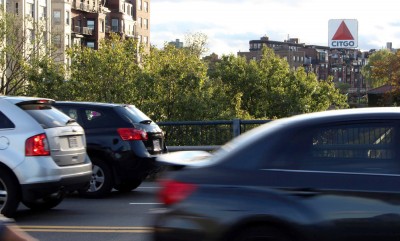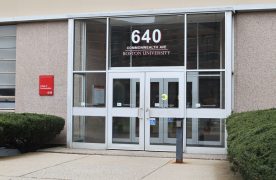
The Massachusetts Senate passed a bill Jan. 28 that will help Massachusetts reach its greenhouse gas emissions goals as set by the Global Warming Solutions Act of 2008. The bill sets a target of between 35 and 45 percent below the 1990 emissions level by 2030, and another target of between 55 and 65 percent below the 1990 emissions level by 2050.
According to the bill, each yearly goal provides a milestone to pave the way for the next goal.
“The 2030 statewide greenhouse gas emissions limits shall maximize the ability of the commonwealth to meet the 2050 statewide greenhouse gas emissions limit … provided, however, that the 2040 statewide greenhouse gas emissions limit shall maximize the ability of the commonwealth to meet the 2050 statewide greenhouse gas emissions limit,” the bill stated.
The Massachusetts Global Warming Solutions Act was signed in August 2008 and provided an outline for “reducing heat-trapping emissions to levels that scientists believe give us a decent chance of avoiding the worst effects of global warming,” according to the Energy and Environmental Affairs website.
Dan Douglass, a professor at Northeastern University, said greenhouse gases act as an “insulating blanket” for the earth and contain radiation that should be escaping back into space, yet are trapped by gases in the environment.
“The energy of the incoming sun passes through the atmosphere and reaches the ground surface where [the gases are] mostly absorbed, and then those gases are not transparent to the type of infrared thermal radiation that the ground surface creates,” Douglass said. “So the energy can come in, but the radiation that is attempting to leave the atmosphere … is absorbed by those gases in the atmosphere and the heat is trapped.”
Douglass said the controversy of whether or not climate change exists prevents positive environmental change from happening.
“I think it’s a combination of lots of different factors, from people not wanting to look at the data objectively [because] we all have predisposed notions of the way the word works,” Douglass said. “I think there’s a sizable chunk of people, not just in this country but across the globe, that say, ‘Oh, that can’t possibly be happening,’ and I think that’s a psychological phenomenon that is really difficult to overcome.
Since the implementation of the Global Warming Solutions Act, emissions from businesses, residents and vehicles have declined 15 percent from 1990 statistics due to state policies that have provided more energy efficient options, according to Energy and Environmental Affairs website. The Global Warming Solution Act’s goals are to reduce emissions 25 percent by 2020 and 80 percent by 2050.
Douglass said that any attempt to reduce emissions and stop global climate change by individuals not just in Massachusetts, but also across the world, would prove beneficial.
“[Reducing greenhouse gasses] is analogous to eating healthy,” Douglass said. “If you do it a little bit, you’ll get a little bit of health benefit, and if you do it a lot, you’ll get a lot of health benefit … there’s no single thing you can do to fix the problem, and so the solution is probably going to be coming from doing a little bit here and a little bit there.”
Several residents agreed that a reduction of greenhouse gas emissions in Massachusetts would be beneficial toward preserving the environment.
Jared Kitchen, 34, of Brighton, said it is important to do anything we can to protect the earth.
“I think that we need to do all we can to help,” he said. “We’re all stewards of the earth and we need to do all we can to protect it.”
Matt Postorino, 20, of Allston, said everyone’s main focus should be finding new, renewable energy sources to combat climate change.
“I definitely think climate change is an important issue,” he said. “We need to focus on finding renewable energy sources and move away from nonrenewable energy.”
Natalie Coley, 46, of Mattapan, was pleased that local government is trying to enact legislation to limit greenhouse gas emissions.
“Climate change is a big issue right now,” she said. “I’m glad the senate wants to pass a bill and actually do something concrete about it, and not just talk about it.”













